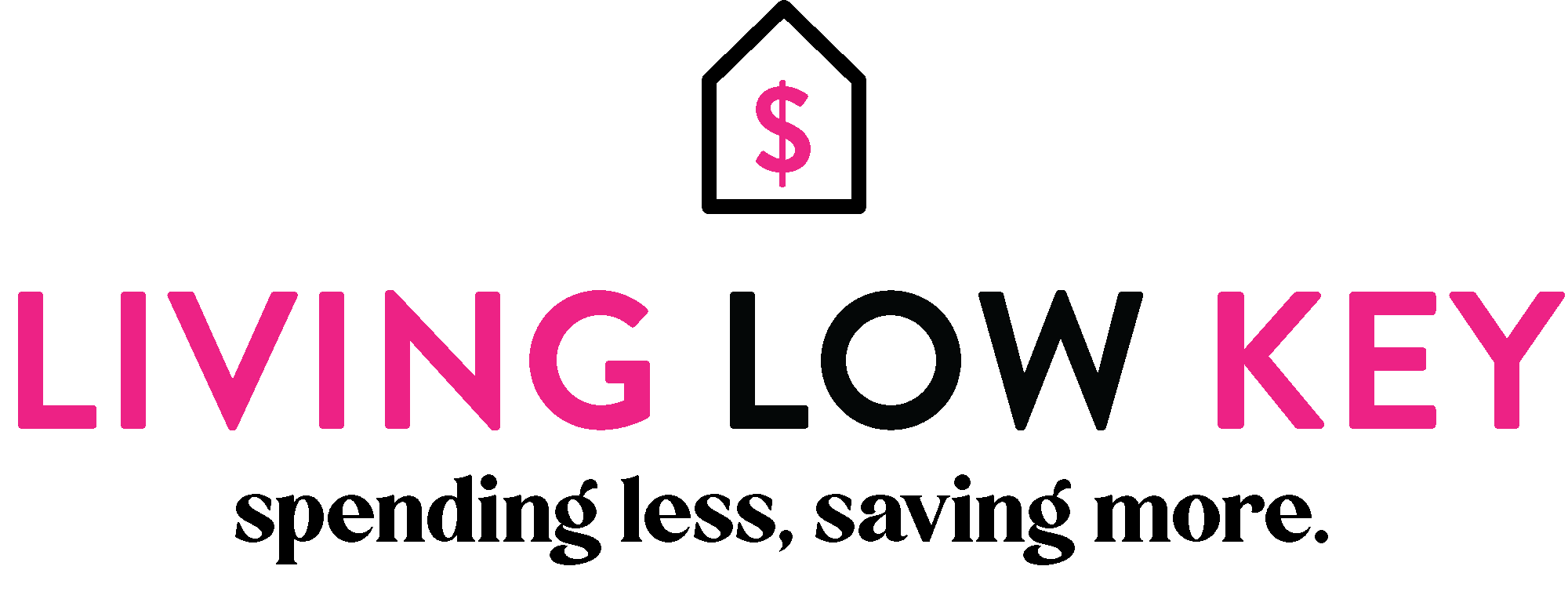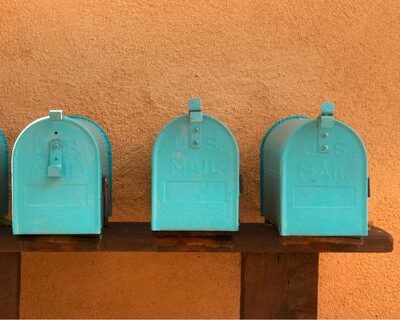Have you ever wondered how to create a budget but aren’t sure how to do so or know any budgeting strategies?
Don’t worry – we’ve got you! This article will look at how to make a budget, why budgeting is essential, and many budgeting tips for beginners..
We are huge fans of budgeting for success – it has helped us get ahead with our finances, and we firmly believe it can do the same for you too.

What Is A Budget?
So first, you may be wondering – what actually is a budget? Budgeting can get a bad rap, as it is often referenced when people are talking about being low on money.
For example, if you invite someone out for a meal and they say something like, “sorry, I can’t come out, I’m on a really tight budget,” – this makes your mind think that budgeting is a bad thing.
But a budget doesn’t need to be a bad thing at all; it’s just a way of making a plan for what you’re doing with your income!
Reasons Why Budgeting Is Important
Budgeting is important because how can you expect to get ahead if you don’t know where you’re starting from?
Creating a budget is all about being honest with where your money is currently going and making a plan for where you want it to go.
What’s a dream without a plan, right? You need to think about what your goals for your life are (this is so fun to brainstorm!) – and then you can use your budget to make a plan for how to get there.
It will also help you get more organized and feel more at peace because you know where your money is going, and you don’t have to panic over how you will pay for things.
Before we get started, make sure you grab our amazing FREE budget binder below!
Grab Your FREE Budget Binder Today!
Start saving more money and pay off your debt with this FREE Budget Binder
How To Make A Budget That Works
Are you ready to start budgeting? Below are the best strategies you should follow to start your budgeting journey. If you want to learn how to budget, these steps are for you.
1. Set clear budget goals
It’s all well and good to say that you are going to budget, but you need to think about what your goals are and why you want to budget.
It’s got to be for a good reason, or you just won’t stick to it – this happens to the best of us!
Try to be clear on what you want from having a budget. What are your goals for your life, both long-term and short-term?
Example of budget-related goals:
- Pay off your school loans
- Be able to take a yearly vacation
- Save 5% of each paycheck
- Pay off your mortgage
- Buy your first rental property
- Start investing
Like some of the ideas above, you might want to begin your budgeting journey so a goal. Whether it’s simply to pay off debt, go on vacation, buy that expensive pair of shoes, or furnish your home.
No goal is too little or too big, and any goal is the perfect reason to start budgeting for success.
2. Calculate your monthly income

One of the first steps to making your budget is calculating how much money you have coming in each month.
If it varies from month to month, you can work off an average, a projection, or the minimum (whatever makes the most sense for you).
For example, if you have two paychecks each month, take your bi-weekly paycheck and time it by two to figure out how much you make each month. Don’t forget to include any side hustle or side job you might have on the side.
Also, include any other form of income you have coming in each month. For example, my husband has his day job, but he also has a sales side gig, and he gets a disability each month from his time in the military. And I own and operate two blogs and have a handful of small side hustles as well. These are all things you should be including in your monthly income.
3. Determine your monthly expenses
The longest step in creating your budget will likely be this one – determining what your monthly expenses are.
To do this, you will need to go back through spending for the previous month, which will help you work off real numbers. If you are going to guess, this is where things can go wrong.
You can go back through your bank statements to find this information. The easiest way to do this is by logging into your bank account online.
Start by looking at your fixed expenses, which are the ones like your mortgage/rent – the type of expenses that don’t vary each month.
Other fixed expenses:
- Phone bill
- Netflix
- Gas bill
- Electricity
- Car loan
- Car insurance
After you have those, you can look at your other expenses – the things that you are spending money on that vary from month to month.
These would include things such as groceries and gas. Remember, variable expenses change from month to month.
Related article: Make Saving Easy With This Free Budget Binder
4. Create your budget

Now you need to create your budget! Remember, a budget is just a plan for how you will spend your money.
It’s really that simple. The hard part is following it!
Your budget will consist of your income and expenses as detailed above, but you will also want to consider any debt payments, savings, and investments.
If you haven’t already, grab our free budget binder printables below so you can record your expenses properly and be on the way to creating the best budget possible.

5. Adjust your budget as needed (Biweekly or Monthly)
Many people think you need to do a budget once and you are done – but that’s not the case!
A budget is fluid, and our lives change from day to day, let alone month to month. You will need to adjust it as things come up and as you have realizations.
Related articles:
- 11 Of The Best Cash Envelope Wallets For Budgeting Your Money
- 8 Of The Best Budget Planners You’ll Obsess Over In 2020
- The Best Free Debt Tracker Printable: Kiss Your Debt Goodbye
- 13 Best Budget Apps For Couples (Never Fight About Money Again)
Grab Your FREE Budget Binder Today!
Start saving more money and pay off your debt with this FREE Budget Binder
Choose A Budgeting Plan Or Method
Okay, so you have got your budget down. What’s next?
Now it’s time to pick the best budgeting method or system to keep you on track. Or maybe you’ll even use a mix of two different budgeting methods.
Everyone is different, so you may find what works best for you may not work best for everyone else.
This stage is about trial and error and seeing what works best for you – there’s no right or wrong way to budget!
Envelope system
The envelope system is super simple. To get started, pick up white envelopes from the store. Write a different budgeting category on each envelope, e.g., groceries, car, kids, etc.
Say after your expenses are paid for the pay period, you have budgeted $300 for food, $100 for the kids, and $200 for spending on necessities. Fill each category with your payday cash. Once you run out of money in your envelope, you are out of money for that pay period.
The envelope system’s main purpose is to physically see how much money you have left in each category. Once you run out of money in an envelope, you are done spending for that pay period.
Watching yourself spend your hard-earned cash hurts a little more than swiping a card.
Related article: 71 Budget Categories You Might Be Forgetting From Your Budget
50/30/20
The 50/30/20 budget method is a way of splitting up your money and is helpful to people who aren’t sure how much money to allocate and to where.
The split works like this: 50% for needs, 30% for wants, and 20% for saving or paying off debt. You can read more about the 50/30/20 budgeting method here!
Zero-based budget
The zero-based budget method is one that we think everyone should be using! It’s a great way of ensuring you have all bases covered and you don’t waste any of your hard-earned cash.
This method is where you allocate all your money to certain jobs, so you are effectively left with ‘zero’ – although this will include savings, paying off debt, etc. You can read more about the zero-based budgeting system here!
Pay yourself first
If you have come across the finance community, you will know that paying yourself first is often discussed.
This is very simple – it just means that on payday, you will put money into the things you truly desire – this will probably be your savings – instead of trying to save what’s left at the end of the month or the end of a pay period.
Because usually, by the end of a pay period, there isn’t anything left to SAVE.

Budget by paycheck
Budgeting by paycheck can mean one of two things. You can create a separate budget for each paycheck if you have multiple income streams. This would work if you and your significant other budgeted your money separately. Or you can budget your money by paycheck.
Budgeting by paycheck is a smart thing to try and an even smarter thing to implement into your daily life. You simply take your income and subtract your expenses for that pay period. If you have anything left over, send it to your savings or payoff of debt.
How Can I Reduce My Expenses?
As we said, when a lot of people think about budgeting, they think about how little they will be allowed to spend, and that’s not the case.
However, it can help you to reach your financial goals if you reduce your expenses, as there will be fewer outgoings and more money that is free to save.
A large part of budgeting is making a plan for where you want your money to go. You will need to look at where money is currently going to see if you need to make any changes.
Once you have looked at where it’s going, you may see some spending going on that isn’t in line with your financial goals.
Separate wants from needs
It’s easy to say that everything is a want, but that’s rarely the case. There are some things that we need to survive and have a decent standard of living, and that’s what you need to identify.
An excellent way to do this is by reviewing your past month’s spending and seeing what you have been spending your money on. Are these all things that you need?
Below are examples of basic needs.

Analyze where you spend the most money
In line with our point above, once you have looked at your spending, it’s time to really analyze where you are spending your money.
We always tell people – this isn’t an exercise to make you feel bad, but so that you can see where you’re currently at and then decide if you need to make any changes.
It can help to add up where you are spending to see if there are any particular areas you need to focus on.
So grab a pen and some paper. Open up your latest bank statement online and write down everything you spent money on last month or last pay period that wasn’t a basic need.
I think you will be surprised at what you see.
Take Away Temptation To Overspend
Once you have looked at your spending, you can see the areas in which you overspend, and it’s then important to think about what leads you to overspend in these areas.
Again, it’s not an exercise to make you feel bad, but to make you AWARE of where your money is going.

Best Budgeting Tips For Beginners
1. Work with your partner
If you are in a relationship, it is mega important that you both get on the same page. That doesn’t mean you have to have the same lifestyle or micromanage each other’s spending.
The best thing to do is to sit down together and have a money date. This is something that you can make really fun! You could do something like go out for food and make a proper date out of it.
Discussing your big life goals would be best because everything you do will need to point you both in that direction.
You both need to agree on common goals and see how you can work together to achieve them. Not only that, but you need to talk about your individual goals so that you can support each other in those financially.
2. Budget for success with an accountability partner

Even if you are super focused and determined on your goals, even if it’s something that you think could be quite easy, like budgeting, it is hard to do it alone.
Finding an accountability partner can make budgeting fun! You heard me!
Having an accountability partner makes it easier to stay on track and keep motivated, and if you fall off the track, it is easier to get back on.
This could be someone you know personally and can meet up with, or maybe someone with similar goals to you who you know through Instagram or similar.
3. Take advantage of budget apps
There are so many different types of budgeting apps, and again, it’s all about trial and error. Some of these budgeting apps are free, and some cost a few dollars a month, so do your research.
Here are some of our favorites:
- Mint – Best app for helping you save money each month
- Digit– All in one simple budget app saves, budgets, and invests for you
- Personal Capital App– The best financial planning tool
- PocketGuard– One of the best mobile apps that allows you to save automatically
- EveryDollar – Best budgeting app for Dave Ramsey fans
- Wally – Free budgeting app
- You Need A Budget– Start your monthly budget with these budgeting tools
- Goodbudget– Track your expenses and recurring bills with this app
- Clarity Money– Tracks your spending
- Honeydue– Simplest way to manage money together
- Honeyfi – Visually see all of your accounts in one place
- Zeta – Two cards, one account
- Trim – Trim your spending and then work hard to save money
4. Use a paper budget planner
We love using paper budget planners because it feels much more real and tangible if you write it all out.
Yes, you can use apps or spreadsheets, but it’s easy to ignore those or find it a bit detached by just typing numbers into Excel.
There are so many paper budget planners available, and you could always start with a cheaper, simpler version if you don’t want to invest in a more expensive one right away.
5. Use a cash envelope wallet
A cash envelope wallet isn’t for everyone, but it is definitely a good thing to try to see if it works for you.
The reason why cash can be good in helping your finances is that cash feels more real and more tangible.
When you are paying for something by swiping a card, there isn’t any resistance or time to mull over your purchase. You also can’t see the money physically leaving you, so it’s all a bit disjointed.
However, if you have the cash in your hand and you see yourself handing it over, you can see how much you are left with after paying – which makes it feel more real, and you’re more up to speed with how much you are spending.
6. Incorporate sinking funds

If you want to get organized with your finances, you will want to look into sinking funds. Sinking funds are small pots of money you use to save for things you will be spending throughout the year and perhaps struggle with cash flow.
A good example could be birthdays or Christmas, as those happen at the same time every year, so you know when they will be, and you can work out roughly how much you want to spend.
Once you have figured out how much you want to spend and how far away the event is, e.g., six months until Christmas, you can divide the amount of month left to save by how much you need to save, which will give you the amount you need to save each month.
For example, if there are six months until Christmas and you want to save $600 for it, then that would be $100 per month to save.
What a lot of us tend to do instead of using sinking funds is to try and cash flow it when it comes to the month, e.g., Christmas time, but find it difficult to cash flow a large amount of money. A lot of people have to put Christmas on credit cards, and this is something that can hopefully be planned for in advance.
7. Automate your savings
This is one of the best things you can do for your finances and everything else in your life!
Remembering to send money to your savings every month is hard to do on top of an already busy life.
You can set up your savings to automatically come out each month – which will save you precious time and help you stay on track with your savings.
A lot of the time, it’s common to want to save, but if you wait until the end of the month to put your money into savings, you may end up spending the money throughout the month and not having much left over to save.
Automating your money on (or slightly after) payday means that you can save the amount of money that your lifestyle allows you to, rather than trying to save the small amount that is left after a bunch of spending.
Common Budgeting Mistakes

There are some common budgeting for beginners mistakes that we see time and time again – but we hope that by sharing some of them with you, you will find it easier to avoid them.
Excessive spending
This sounds obvious, but spending too much can take you away from your goals.
That doesn’t mean you can’t spend your money ever, but it’s about allocating the correct amount to do so.
Your budget is too constricted
When you first start budgeting, cutting back to try and reach your goals faster is tempting, but that’s not very realistic.
You will want to make sure you allow yourself some money for enjoyment, and you can adjust as you go.
You forget to track your spending
If you aren’t tracking your spending, you can’t use your real numbers to create your budget and see if there are any issues. Always track your spending with a free app or our free budget binder!
Budgeting For Beginners- Final Thoughts
We hope you are inspired to get started budgeting and work your way towards all of your financial goals!
Save this post for later, and follow us on Pinterest for more money-saving challenges!

Related articles:
- Best Place To Buy Glasses Without Insurance In 2022
- How To Score Cash For Clothes You No Longer Wear
- How To Do The 100 Envelope Challenge (Free Printable Included)
- Living Cheap: How To Live Cheap And Still Thrive
Grab Your FREE Budget Binder Today!
Start saving more money and pay off your debt with this FREE Budget Binder





 Convert Your Visa Gift Card To Cash (13 Simple Ways)
Convert Your Visa Gift Card To Cash (13 Simple Ways)